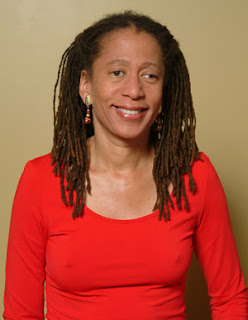Photo Contributed by Laura Washington
Following directly behind the rapid evolution of the Internet is the changing world of journalism. Veteran journalist Laura S. Washington has been a part of the swift change between basic print journalism, and the present electronic based Journalism.
Washington has over 20 years of professional experience in print and broadcast journalism. She has received both her Bachelor’s and Master’s degrees in journalism from Northwestern University.
Her work has been featured in major publications like The New York Times, Newsweek and Time magazine. Since 2001, Washington has had her own column appear in the Chicago Sun-Times. Before that she was the editor for The Chicago Reporter from 1990 to 2001.
While working at the Chicago Reporter, Washington was introduced to the groundbreaking world of journalism on the Internet. She was part of the initial shift from print journalism to online journalism.
With experience in both print and online journalism, Washington is the perfect candidate to speculate what will happen with the old hard copy journalism, and where online journalism will lead.
KD: Ten years ago would you have thought that journalism would have gone so electronic via the Internet?
LW: Ten years ago I worked at The Chicago Reporter and we partnered with the Chicago Tribune and Chicago Online, a subsidiary of AOL. Even the people were saying that digital was a big part of the media's future. But we thought it would always be ancillary, a form of expansion, not replacement. The Internet is now driving print, it the other way around. No one anticipated that.
KD: Was blogging something that you welcomed with open arms, or were you forced to evolve with the changing world of journalism?
LW: I fiercely resisted blogging. Like any professional, I want to be compensated for my work. We are not there yet. But I also want to have a voice. I live and breathe information. I am a natural gossip, an essential quality for a good reporter. I need a place to report, so I plunged in. It's vital to have a platform and a way to market your work. Blogging does that.
Several times a day I run across a story idea, tip, blog post, or event that offers up a story. There are so many stories in Chicago that are under covered or ignored. I treasure my weekly newsprint column, but it's a challenge to hit the right timing. Timing is everything in news. That's what I have learned through the blog.
KD: What have been some of the useful online search engines or applications that help you or online journalism in general?
LW: Google and Google alerts are invaluable. I also use Nexis/Lexis. I use WordPress for my blog. It's easy to use.
KD: What are some of the things that will always stay true to the classic paradigm of real journalism?
LW: Accuracy is paramount. Without it, you have no credibility. The facts must check out. Solid reporting is more effective and impactful than good opinion. Everyone needs a good editor.
KD: What are the advantages and disadvantages to an online journalism world?
LW: Advantages: You don't need permission from an editor to report a story. You can turn it around on a dime, you don't need to wait for anyone else to edit or publish it. You can react more quickly, be more timely. Follow-ups are easier.
Disadvantages: It's harder to build an audience. You have to go find the readers/viewers. With old media, the news organizations bring the eyeballs to you. You need good editors and they are in short supply in the on line world. Reader, beware. Bias and hidden agendas run rampant on the Internet.
KD: Do you find it harder to find good journalism on the Internet or easier?
LW: Good journalism is everywhere. You have to be an astute reader and news consumer. You'll find the best stuff in the fray.
KD: What aspects of the Internet do you think are ruining the future of real journalism?
LW: There is too much bloviating out there. Too many blow horns that are masquerading as journalist. They don't follow journalistic standards and think they don't matter. They have agendas that run counter to fairness and the responsible reporting. They are hurting the profession.
KD: Ten years down the road, where do you see the world of journalism?
LW: It's impossible to predict exactly where we will be in 10 years. Traditional journalism—what I describe above—accuracy, fairness and strong reporting—will survive.


No comments:
Post a Comment